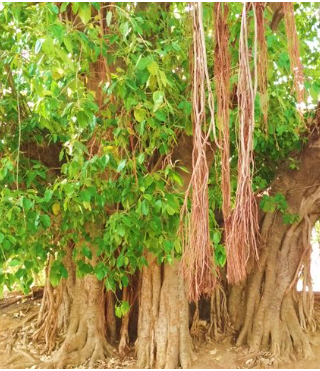The Urgency of Environmental Protection: A Shared Responsibility
In a world where climate change, pollution, and resource depletion are becoming ever more pressing, environmental protection is no longer just a governmental duty but a shared responsibility of all individuals, communities, and industries. This blog post explores why protecting our environment is critical for sustaining life on Earth and emphasizes the importance of collective action. From small lifestyle changes to community-driven initiatives, each person has a role in creating a sustainable future.
SOCIAL PROJECTSSOCIAL ENTREPRENEURSHIP
SCT
10/3/20242 min read


"Beyond Government Initiatives: The Need for Community Action in Environmental Protection" By SCT
Climate change has become a global issue, and its impact can be seen on every continent. Europe, known for its stable and cooler weather, is now experiencing increasing heat. Countries like Portugal, Spain, and France are also facing higher temperatures, indicating how rapidly climate change is progressing.
Impacts of Climate Change:
Increase in Temperature: As temperatures rising, heatwaves are becoming more common, leading to more health problems.
Water Shortage: Reason to the increased evaporation from the heat, water scarcity is becoming a major issue.
Natural Disasters: Wildfires, floods, and droughts are becoming more frequent.
Ecological Imbalance: Wildlife and plant species are also deeply affected.
Steps to Address This:Afforestation: Planting more trees and expanding green areas.
Energy Sources: Increasing the use of renewable energy sources such as solar and wind energy.
Raising Awareness: Educating people about the impacts of climate change and its solutions.
Policies and Regulations: Governments should implement stringent policies and regulations for environmental protection.
Sustainable Lifestyle: On an individual level, people should adopt environmentally friendly lifestyles, such as reducing plastic use, saving energy, and supporting sustainable farming practices.
Climate change is a serious issue that cannot be ignored. To mitigate its effects, we need coordinated efforts at personal, social, and governmental levels.
It might sound strange, but it's true 👉🏻
In the past 68 years, the government has largely stopped planting peepal, banyan, and neem trees.
The peepal tree absorbs 100% of carbon dioxide, banyan 80%, and neem 75%.
Instead, eucalyptus, a foreign tree species, has been widely planted, which depletes groundwater...
Today, eucalyptus, Gulmohar, and other decorative trees are seen everywhere.
When the natural "air purifiers" are missing, heat will rise, and as it rises, more water will evaporate.
If a peepal tree is planted every 500 meters, India could be pollution-free in a few years. 🌳
Here’s another interesting fact:
The peepal leaf has a wide blade and a thin stalk, so it moves even in still air, continuously releasing fresh oxygen.
In fact, the peepal tree is called the "king of trees." There is a Sanskrit verse honoring it:
"Moolam Brahma, Tvacha Vishnu, Sakha Shankaramevacha,
Patre-patreka Sarvadevaanaam, Vriksharaj Namastute."
What we can do:
Raise awareness in society to plant more of these life-giving trees. Create parks and gardens, plant trees, and avoid turning gardens into unnecessary playgrounds. Just as humans need both air and water, so do trees and plants.
Plant one banyan, five peepals, and neem trees near every home. This is our ancient formula.
This ancient wisdom is now being embraced by all. Pollution will flee, and everyone knows it.
May global warming disappear, and may all hearts rejoice. For on this earth, the holy trinity is neem, peepal, and banyan.
Written by: social change travellers, Amit Singh
BTH GROUP
Your gateway to incredible Indian tourism experiences.
ENQUIRY
Travel & read
info@bthgroup.in
Whats app : +91 9871512964
bthgroup© 2024. All rights reserved.
Values
Email; SCT@BTHGROUP.IN
For Business:
